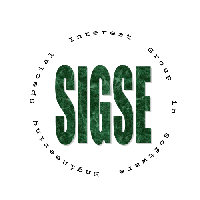Workshops
- W-ESR: Embedded Software Reliability
- W-IPM: In-Process Measurement
- W-QR: Quality in Requirements
- W-SPM: Synergy in Process Models
Workshops are being finalized. A synopsis of the workshops follows, and each has its own page.
Most Workshops are open for talk submissions till around October 11.Check each workshop page individually and contact the workshop organizers directly. All submissions go through the common CMT submissions site. Access through the Submit Process link.
W-ESR: Embedded Software Reliability Workshop
This workshop will bring together experts, providers, and users of tools and technologies for developing and evolving embedded software systems. The users include makers of home appliances, televisions, telephones, automobiles, aircrafts, and heavy machinery and also the government organizations for space exploration and defense. The providers include software companies and experts from consulting companies, universities and other research organizations working with design and development of tools and methods for achieving higher reliability and greater efficiency.
This will be an excellent opportunity to connect with the community, learn about new tools and successful methods, know the issues and problems the practitioners face, and understand various perspectives and pros and cons of different solutions
W-IPM: In-Process Measurement
Improving Software Reliability Using In-process Metrics
Industrial strength software development enforces numerous processes to deliver the product ontime. To improve software quality, including reliability, processes are often modified. However, it is often difficult to understand the impact of any one process change or addition on the overall software reliability, since it can frequently take many months to get sufficient feedback from the field. If software measurements made early in the lifecycle can be found to predict ultimate release quality, we can then effectively isolate the influence of specific processes/practices and tune them appropriately to improve the resulting quality.
Requirements engineering (RE) is one of the first activities in a software development process; all later steps of development are directly or indirectly based/influenced by the requirements. Without clear, shared understanding of requirements, the effort expended on the development may be wasted. The delivered functions of a software product must match the user needs; many computer based information systems have failed because of inability to capture correctly the user requirements. And when a completed software product is modified to incorporate late-understood user requirements, the effort spent (and consequently the cost) are extremely high. This indicates the importance of quality in requirements engineering, and detecting defects or errors in requirements as early as possible.
The purpose of this workshop is to understand and promote the role of quality in requirements engineering. In particular, we are interested in the requirements quality metrics that will help practitioners improve the quality of requirements specifications and maturity of our requirements engineering activities, for example, quantity metrics, quality (or product) metrics, volatility metrics, and process metrics. This workshop will also provide a forum for discussing the challenges associated with quality in requirements engineering and with establishing practices in the software development process.
W-SPM: Synergy in Process Models
- BSPIN - Bangalore SPIN organization
- J. Veeraraaghavan (jvraghavan at yahoo . com) - Bengaluru, India - Contact in the East
- Rick Follenweider (rfollenw at cisco . com) - San Jose, CA, USA - Contact in the West
Update 9/16/2009. This workshop has just been launched. The Bangalore SPIN team met in the past few days and has started developing the program. We will put up the workshop page in a day or so. There is a lot of interest in the area and we are currently planning a one day workshop. Those interested in connecting with this workshop please connect with JV (India Timezone) or Rick (US Pacific Timezone).
Background information - for reference. This will be revised/updated on the workshop page shortly.
The basic position is:
- We have several process improvement methods, models and practices. CMMi, Six Sigma, TL, ISO, being the prominent ones.
- What is common among them, and what is different?
- What are the experiences in using one over the other?
- Did some institutions begin with one and find it too hard to sell and then switch to another?
- Are there some specific advantages of one over the other based on industry or market segment?
- Some industries require compliance with a specific practice. Are there lessons learnt in the use of another model that make it more effective to implement?
- Some institutions have modified the original models or extended them so that they provide value in more than one business or technical realm. For instance, ROI analysis is particularly valuable when margins erode and we need to survive business cycles. What are the insights gained?
- There is resistance to use of these models across different product companies? What are the major arguments in favor for or against a model?
- The services businesses have been the ones that gave the CMM a big boost. The product company pickup has been slower. What are the lessons learnt from this experience?







